Daemon Targaryen: I heard your father was hosting a tournament in my honor.
Rhaenyra Targaryen: The tournament is for his heir.
Daemon: Just as I said.
Rhaenyra: His new heir.
Daemon: Until your mother brings forth a son … you are all cursed with me.
Rhaenyra: Then I shall hope for a brother.
In the premiere episode of House of the Dragon – along with re-introducing viewers to the setting of King’s Landing and introducing several of Daenerys Targaryen’s storied ancestors, the show specifically presented a potential succession crisis.
King Viserys Targaryen (the first of his name) had been hoping – dreaming even – to welcome a son into the world; a son who would be named his heir. Tragically, his wife Queen Aemma did not survive the Westerosi standard of obstetric care and her reasonable request that her current pregnancy be her last one was realized in the most terrible way possible. Their newborn son Baelon did not long survive his mother.
With the king suddenly a widower, his small council called for an emergency session. Prior to Aemma’s pregnancy, the king’s brother Prince Daemon Targaryen was the heir-presumptive to the Iron Throne. For only a brief time, baby Baelon was the heir –
Prince Daemon: For a day.
On this meeting’s agenda was an estate planning proposal to remove Daemon as Viserys’ designated successor for fear that he would be unsuitable as a monarch, should something ill-fated happen to his royal brother.
Otto Hightower: Daemon would be a second Maegor, or worse. He is impulsive and violent. It is the duty of this council to protect the realm and the king from him.
Hand of the King Otto Hightower suggested that the king’s eldest child, Rhaenyra Targaryen, could be a replacement heir, triggering in response the usual arguments of male-preference primogeniture disqualifying her, although Master of Ships Corlys Velaryon tried to ride Otto’s feminist suggestion to favorably position his wife Rhaenys, the king’s elder cousin, who already had a male heir.
King Viserys, uncomfortable with conversations calling for hard decisions, tabled the matter with Daemon’s position as default heir-presumptive intact.
Daemon: You are all cursed with me.
There were unspoken interpersonal factors happening that encouraged some councilors to suggest Rhaenyra as a successor replacement to Daemon – Otto Hightower in particular had a personal investment in not seeing a Daemon Targaryen administration – but the factors can largely be boiled down to the representation of Daemon as an unsuitable potential king.
This idea of choosing an alternate ruler to prevent the reign of a suboptimal candidate is a situation we’ve seen before in Westeros.
THE BARATHEON HEIR
“This is the will and word of Robert of House Baratheon, the First of his Name, King of the Andals and all the rest—put in the damn titles, you know how it goes. I do hereby command Eddard of House Stark, Lord of Winterfell and Hand of the King, to serve as Lord Regent and Protector of the Realm upon my … upon my death … to rule in my … in my stead, until my son Joffrey does come of age …”
“Robert …” Joffrey is not your son, he wanted to say, but the words would not come. The agony was written too plainly across Robert’s face; he could not hurt him more. So Ned bent his head and wrote, but where the king had said “my son Joffrey,” he scrawled “my heir” instead. The deceit made him feel soiled. The lies we tell for love, he thought. May the gods forgive me.
— Eddard XIII, A Game of Thrones
In Season One of Game of Thrones, honorable protagonist Ned Stark was faced with the situation of an unsuitable ruler about to take their seat on the Throne, with Ned being in a position to either allow that to happen or to influence the event otherwise.
Prince Joffrey Baratheon (as was soon discovered during his brief reign) was bound to be a terrible king, but that wasn’t the disqualifying factor to Ned Stark.
Ned: I mean, kings are kings. Whatchagonnado?
Joffrey was unsuitable because he wasn’t a trueborn son of the king. From the traditional rules in effect for succession, Joffrey would have little claim even if he had been one of Robert’s many bastards, a category in which—as a bastard of Jaime and Cersei instead—he didn’t fit. If Joffrey had been Robert’s legitimate son though, Ned would have had little misgivings about legitimacy, and would have likely transcribed Robert’s words exactly.
But imagine if Joffrey, rather than being the nightmare bloodthirsty brat that he was, had been a thoughtful and progressive-minded individual, perhaps inspired by the example of Aegon V as his kingly role model. Would that have mattered?
Ned: Nope. He can’t be king. Unless I hadn’t known that he was a bastard.
Since Joffrey was not eligible to be king, Ned hesitated in specifically naming him in Robert’s will, and his use of the nearly-equivalent term “the heir” could be unpacked after the king’s passing. From Ned’s point of view, the crown should pass to Stannis Baratheon, the eldest of King Robert’s two younger brothers.
Stannis: I’ll remind you all that I am “of age” as well. No need for a regency.
Much like Viserys’ small council had issues with Daemon being heir, with Ned planning on enforcing his role as regent until Stannis could come to King’s Landing to press his claim, small council members Renly Baratheon and Petyr Baelish lobbied against committing to the painfully-stern and righteous Stannis as the next monarch.
Renly Baratheon: Does it seem fair that Stannis becomes king, when I’m so much more dashing? Kings should be dashing. Like in the songs. Just think of the tragedy to befall the realm, to be denied a dashing, sexy king!
Petyr Baelish: I mean, Stannis is … an interesting choice, no denying. But maybe a choice we don’t choose? Let’s just play along with Joffrey as our puppet ruler and see how things go. And if Joffrey and Cersei happened to slip one day and fall in the dry moat …
*Ned checks the Baratheon family tree, scratches out Joffrey, Myrcella, and Tommen, and circles Stannis.*
Ned: No. It’s Stannis. You are all stuck with him. Get used to it.
Petyr: Cursed, more like.
Of course, Renly quickly left the capital for safety in the Reach, Baelish arranged a double-cross, and Ned was unsuccessful in securing his position as regent.
Ned produced Robert’s letter. “Lord Varys, be so kind as to show this to my lady of Lannister.”
The eunuch carried the letter to Cersei. The queen glanced at the words. “Protector of the Realm,” she read. “Is this meant to be your shield, my lord? A piece of paper?” She ripped the letter in half, ripped the halves in quarters, and let the pieces flutter to the floor.
“Those were the king’s words,” Ser Barristan said, shocked.
— Eddard XIV, A Game of Thrones
Joffrey was installed as king, Ned lost his head, and the War of the Five Kings began.
That’s a lot of kings, although to be fair – two of them were the result of the secession of the North under Robb Stark, and Balon Greyjoy declaring himself king of the Iron Islands.
Of the three kings asserting a claim on the Iron Throne, Joffrey’s claim was based on his illegitimacy not being widely recognized, Renly’s claim was based on being dead King Robert’s more charismatic brother, and Stannis’ claim was based on being older than his more charismatic, younger brother.
Stannis: I feel that my claim has more weight than just that.
Stannis did try to remind everyone of the basic laws of succession, rules that were usually adhered to throughout the realm. He sent out ravens to many of the lords of Westeros, stating his facts.
Stannis: Dear lords, Joffrey is a bastard, Renly is my little brother, you are all cursed with me.
Maester Cressen: I’ll punch it up a bit.
Maester Pylos: Or I will.
Maester Cressen: I can do it!
Maester Pylos: Of course you can, I’m not here to totally replace you.
Stannis was a bit dismayed that most of the lords did not immediately lend support to his claim.
*Stannis checks his Baratheon family tree chart again, with his name circled and a little crown drawn in the margin.*
The problem for Stannis is this: the rules of succession in the end are mostly guidelines, a fact that is brought up in Season Two of Game of Thrones by Lord Varys, the Master of Whispers and political mastermind.
RIDDLE ME THIS, HALFMAN
Varys smiled. “Here, then. Power resides where men believe it resides. No more and no less.”
“So power is a mummer’s trick?”
“A shadow on the wall,” Varys murmured
— Tyrion II, A Clash of Kings
While Tyrion Lannister was managing the realm as Hand of the King, Lord Varys gave him a riddle about power, with the summation being that power resides where men believe it resides. By extension, the rules for succession and precedent and traditions are only binding if they are empowered by the belief of those who might follow them.
Stannis: Laws should be made of iron, not of pudding.
As Ned discovered, these things are often not made of iron, but of less hardy materials.
Cersei: Is this meant to be your shield, my lord?
Ned Stark had as much legitimacy to be Protector of the Realm as Stannis had to being the next king of Westeros. Perhaps more for Ned, since Robert’s final directives established Ned as regent and only by Ned’s subtle changes to the document had Stannis the seal of approval from his older brother’s last words. But the letters Stannis sent out to the various lords had as much success as Ned delivering Robert’s will to Cersei. Neither the lords nor Cersei had much interest in recognizing the claims on the respective papers.
Stannis was just not an appealing candidate.
Renly: Unlike me, with all of my powerful friends I’d made while Stannis brooded in his chambers.
Stannis found himself in a similar situation to Daemon Targaryen – on the outside with power just out of reach.
The rules of male-preference primogeniture favored the relative positions of both Stannis and Daemon – being the brothers of their respective kings, but their positions were overtaken by younger relatives who had more tangible support, support which considered the two brothers-of-kings unsuitable as the next monarchs.
Renly had the support of the lords of the Reach and half of the Storm lords, Rhaenyra had the support of the king, who compelled the high lords of the realm to recognize Rhaenyra as heir-designate.
Stannis: I prefer not to repeat myself, ser, but I shall this time. Laws should be made of iron, not pudding.
Stannis might have wanted laws to be made of iron, but in truth, it’s the number of iron swords supporting a claimant that matter more, regardless of the laws.
Gendry: We mostly make swords out of steel, and not simply of iron. But since steel is an alloy of iron, I guess that’s technically correct.
Westeros has laws and traditions concerning succession – it’s a self-perpetuating system because the eldest sons who inherit also enforce the rules, and they’re likely to insist that they (and everyone else) are to be succeeded by eldest sons, to avoid any commentary or examination on how they got their position of power in the first place.
King Viserys pushed back on tradition by designating his daughter Rhaenyra as heir (even though this could appear to cast shade on past decisions that favored his line of succession over his older cousin Rhaenys’ line.) But as king, the people believed that he had the power to enact this despite any contradictions.
Renly Baratheon pushed back on tradition by asserting that he should be king over the claim of his elder and unpopular brother Stannis.
Renly shrugged. “Tell me, what right did my brother Robert ever have to the Iron Throne?” He did not wait for an answer. “Oh, there was talk of the blood ties between Baratheon and Targaryen, of weddings a hundred years past, of second sons and elder daughters. No one but the maesters care about any of it. Robert won the throne with his warhammer.” He swept a hand across the campfires that burned from horizon to horizon. “Well, there is my claim, as good as Robert’s ever was.
— Catelyn II, A Clash of Kings
Renly felt comfortable in doing this because enough powerful people (with swords at their discretion) agreed to go along with Renly’s untraditional argument. Renly’s ambition might have paid off, had Stannis not relied on a different form of power, a different shadow on the wall.
Melisandre: Look to your sins, Lord Renly. The night is dark and full of terrors.
Laws might not matter when swords are employed to make new rules, and swords might not matter when sorcery is utilized. And nothing succeeds like success. Following Renly’s mystical assassination and the promise of removing some extra kings without relying on legal wrangling or risky battles, it was not too difficult to convince Stannis to experiment with some curses using royal-bastard-blood-filled leeches.
Stannis: The usurper, Robb Stark. The usurper, Balon Greyjoy. The usurper, Joffrey Baratheon.
The answer to Varys’ riddle, of power residing where men believes it resides, is a good framework with which to view most of the exercises of power in Game of Thrones, and presumably in House of the Dragon as well. But it’s not a perfect maxim for all situations though, as Stannis found out as he relied more and more on Melisandre’s magical abilities.
To contrast Varys’ straightforward power summation, magical power doesn’t only conform to the strength of men’s belief. There are costs to using such powers.
“We free folk know things you kneelers have forgotten. Sometimes the short road is not the safest, Jon Snow. The Horned Lord once said that sorcery is a sword without a hilt. There is no safe way to grasp it.”
— Jon X, A Storm of Swords
Stannis could not rely on the law as the lords ignored his claims, found himself outmatched militarily against Renly and later in the North against the Boltons, and became an accursed kinslayer in exchange for magically-produced fair weather that let him march his greatly reduced army towards doom. The consequences of all his actions in trying to overcome his unsuitability finally caught up to him.
Stannis: You are all cursed with me.
In Game of Thrones, the actions people took to secure their place on the Iron Throne, either in the pursuit of the throne or to maintain their control of the literal seat of power, almost always caused tragic consequences to the people closest to them. The premiere of House of the Dragon wasted no time in taking us back to that familiar scenario.
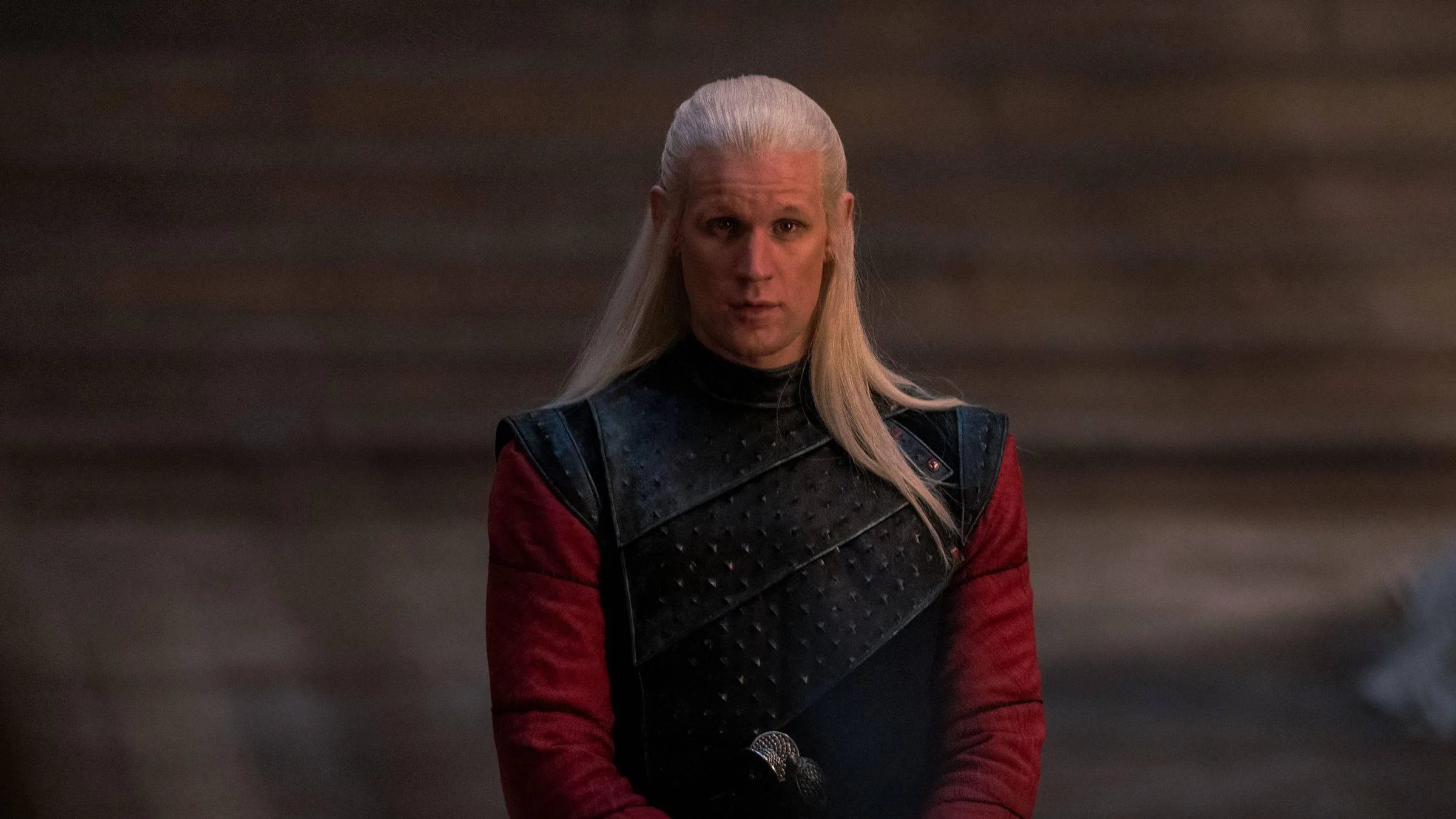
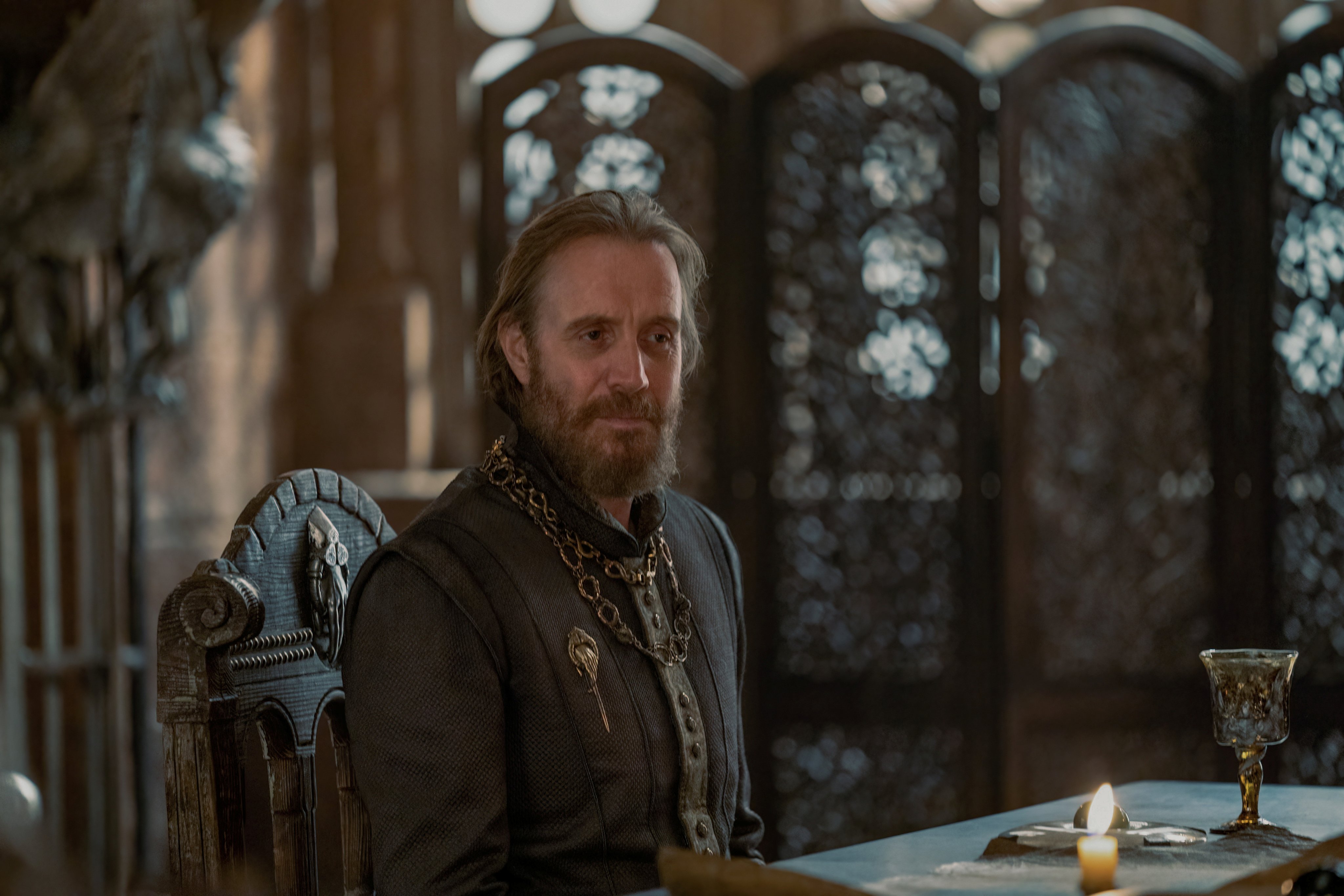
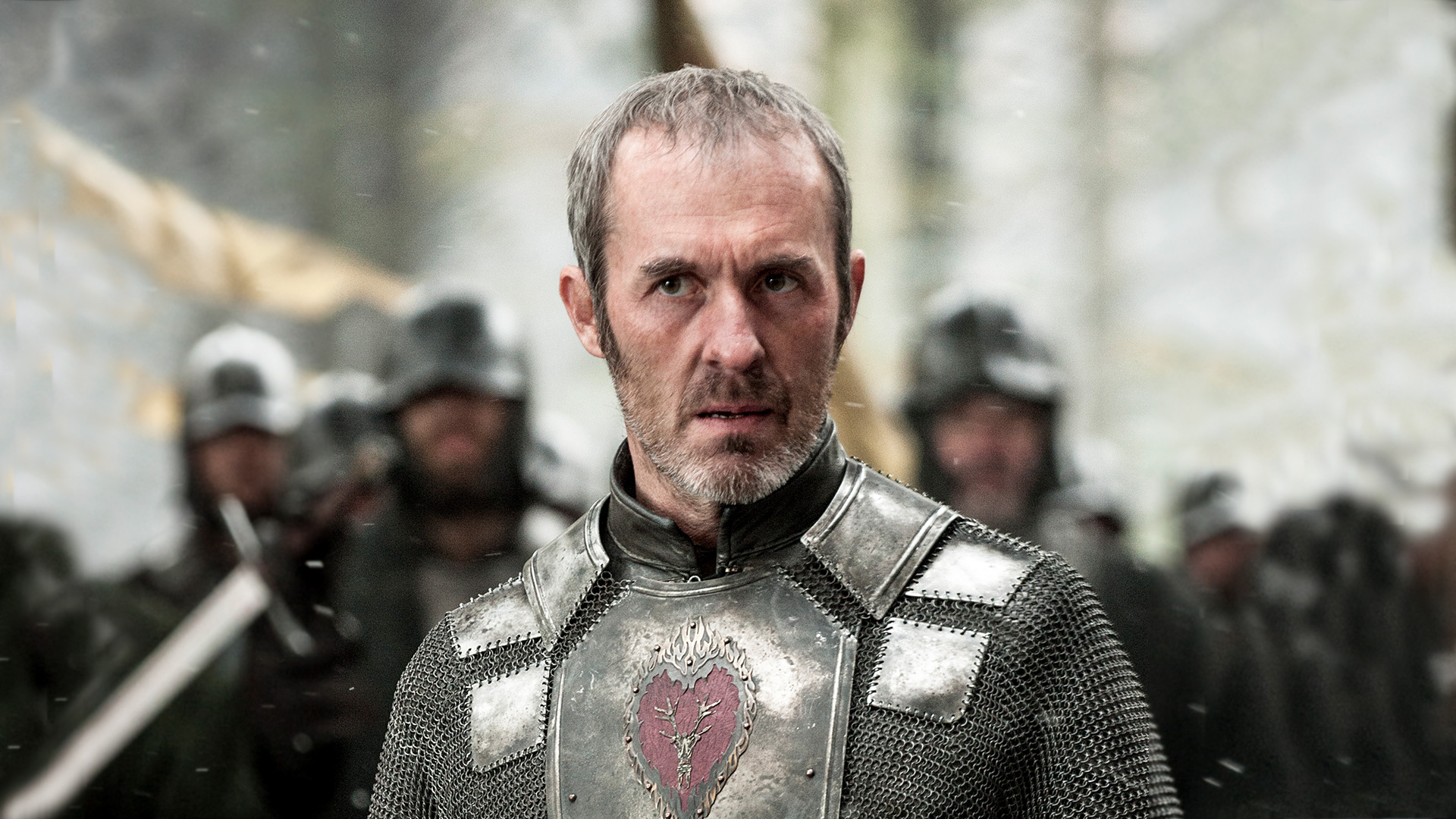
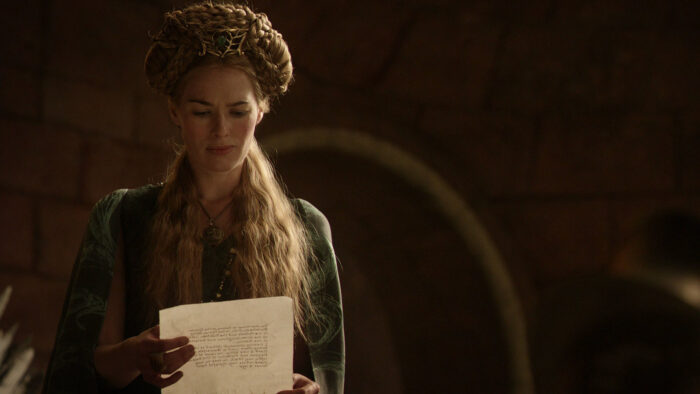
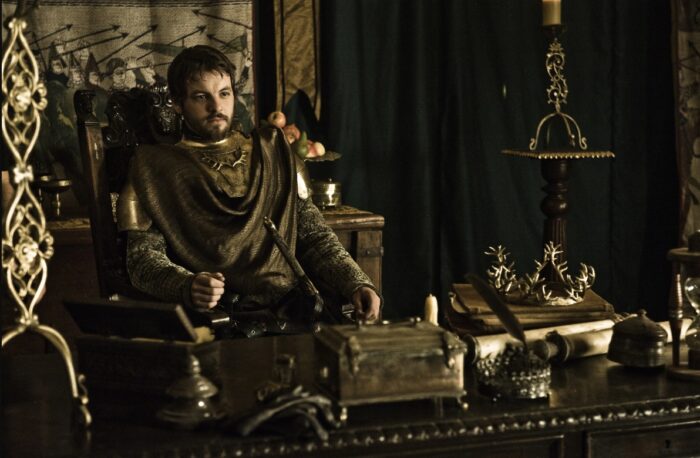
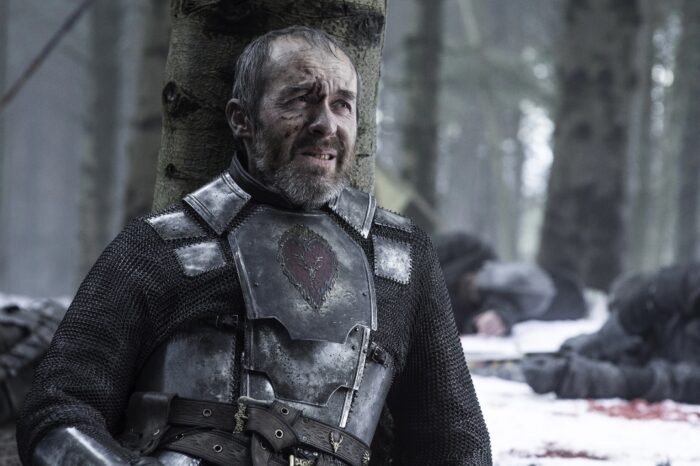
Looking forward to the next episode already. But it is not on GoT’s level. But it does not have to be.
All new Patman dialogue All the time!
Hahah, thanks Bubba! I appreciate the feedback. My style of making up dialogue is my only creative talent.
Stannis: Don’t encourage him.
I don’t think GoT was even on GoT’s level during the very beginning, but I appreciate what you’re saying, particularly that the new show doesn’t have to hitting Game of Thrones at its height level. (Although I hope that it does, but I’ll take what I can get.)